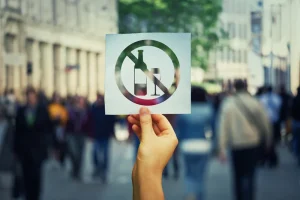
Melody is here to help as you adjust to a life with less (or no) alcohol. You’ll meet millions of fellow Reframers in our 24/7 Forum chat and daily Zoom check-in meetings. Receive encouragement from people worldwide who know exactly what you’re going through! You’ll also have the opportunity to connect with our licensed Reframe coaches for more personalized guidance.
Lessons From Drinking Again After a Sober Month

If a trigger is unavoidable, consider what you can do differently next time you face it. Thinking about taking a Dry January break from alcohol this month? Check out my free workshop “3 Powerful Mindset Shifts to Succeed at Dry January” on how to confidently take a break and maximize your success with a strategic break from alcohol. My goal is to have you walk away feeling excited and pumped, with less anxiety about “Can I do this? But tough love didn’t work for me; Twelve-step program in fact, it doesn’t work for most people when it comes to creating long-lasting change.
The Challenges of Maintaining Sobriety
This can mean you have a decrease in depression, fewer angry outbursts, a reduction in mood swings, less anxiety, and overall feel more stable and happy. Alcohol is known to cause “brain fog,” which can impair memory, concentration, and decision-making due to the imbalance of neurotransmitters in the brain. After a couple of months of no alcohol, the brain and the neurotransmitters begin to regain balance, and you will notice that your thoughts become clearer. The lining of the GI tract begins to recover within the first month of abstaining from alcohol, but GI ulcers, especially ones that bleed, often take a few months to heal once drinking is stopped.

Resources for Recovery Support
You are no longer focused on the intense physical symptoms of withdrawal, so now your brain has time to register that alcohol is out of your system and you may experience strong cravings and urges to drink. There are medications to help control these urges and cravings, as well as therapy and support groups that can help teach you healthy coping techniques. While moderation may work for some individuals, it’s essential to recognize that it carries inherent risks, particularly for those with a history of alcohol addiction.
- Sometimes people in this stage do show up for addiction treatment, but it’s not by their own volition.
- And if we fall into the pattern of drinking more and more, we’re really putting our health on the line — again.
- Doing a cost-benefit analysis to weigh the benefits of alcohol use against the cons and costs can sometimes help a person find clarity at this stage.
- You’ll also have the opportunity to connect with our licensed Reframe coaches for more personalized guidance.
I also did not even anticipate the results I achieved doing this. Most importantly, reintroducing alcohol into your life should not be taken lightly. If you find yourself craving alcohol, never allow yourself to decide in the moment.

Although they are still drinking, they’ve likely begun telling friends and family members about their plan to change their behavior — but they may still feel some ambivalence about their choice. At the preparation stage, alcoholics have decided to make a change, and they are planning to take meaningful steps toward recovery in the near future. You will start to notice an improvement in memory and concentration about one month after you stop drinking, and your mental clarity will greatly improve as time goes on. Your decision-making process will be clearer, you will be a better problem solver, you will be able to multitask, and your overall mental state will improve.
Approximately 15 percent of those who relapse regress to the precontemplation stage, and approximately 85 percent return to the contemplation stage before progressing to the preparation and action stages. Most people drinking again after sobriety recovering from addiction will cycle through the stages of change three or four times before completing the cycle without a slip. Relapse is a common feature of substance use disorders, and it is more the rule than the exception. In fact, 40 to 60 percent of people recovering from substance addiction relapse at some point according to the National Institute on Drug Abuse — but this doesn’t mean their treatment has failed.
- We publish material that is researched, cited, edited and reviewed by licensed medical professionals.
- You may notice that you are getting sick less, and your scratches, scrapes, and bruises are healing faster.
- Finding useful information and resources about addiction or alcoholism can be a minefield.
- Engaging in holistic therapy for addiction, such as mindfulness practices or creative outlets, allows individuals to process emotions constructively and build a sense of inner peace.
- Techniques like mindfulness, yoga, art therapy, and meditation are integrated into treatment plans to promote overall well-being and help individuals find balance in their recovery journey.
- Thus, nighttime awakenings increase (consciously or unconsciously).
- Engaging in subtle and sympathetic conversations and getting alcoholics to explore the pros and cons of their own behavior, for example, can help to lay the groundwork for the second stage of recovery.
- Alcohol “interferes with the brain’s communication pathways, and can affect the way the brain looks and works.
- Time and time again people have fallen back into the same trap and ended up where they were before — or worse.
- If you’re someone looking to explore alcohol recovery, then contact Taylor Recovery in Houston but we serve clients all over Texas and outside.
You may be hesitant to propose this topic to your therapist, your sponsor, or your friends in recovery for fear of judgment or even ridicule; however, there are no stupid questions when it comes to recovery. The more information you have, the easier it will be to find a path to sobriety. Knowing these statistics, why would any of these people choose to drink again? Some of us are at greater risk than others for a number of reasons, including genetics and environment. The first step to https://ecosoberhouse.com/ long-term sobriety is to safely rid your body of alcohol (detoxification or detox), so it can start to regain normal function and balance. Detoxing from alcohol is potentially dangerous and should be conducted under close medical supervision.